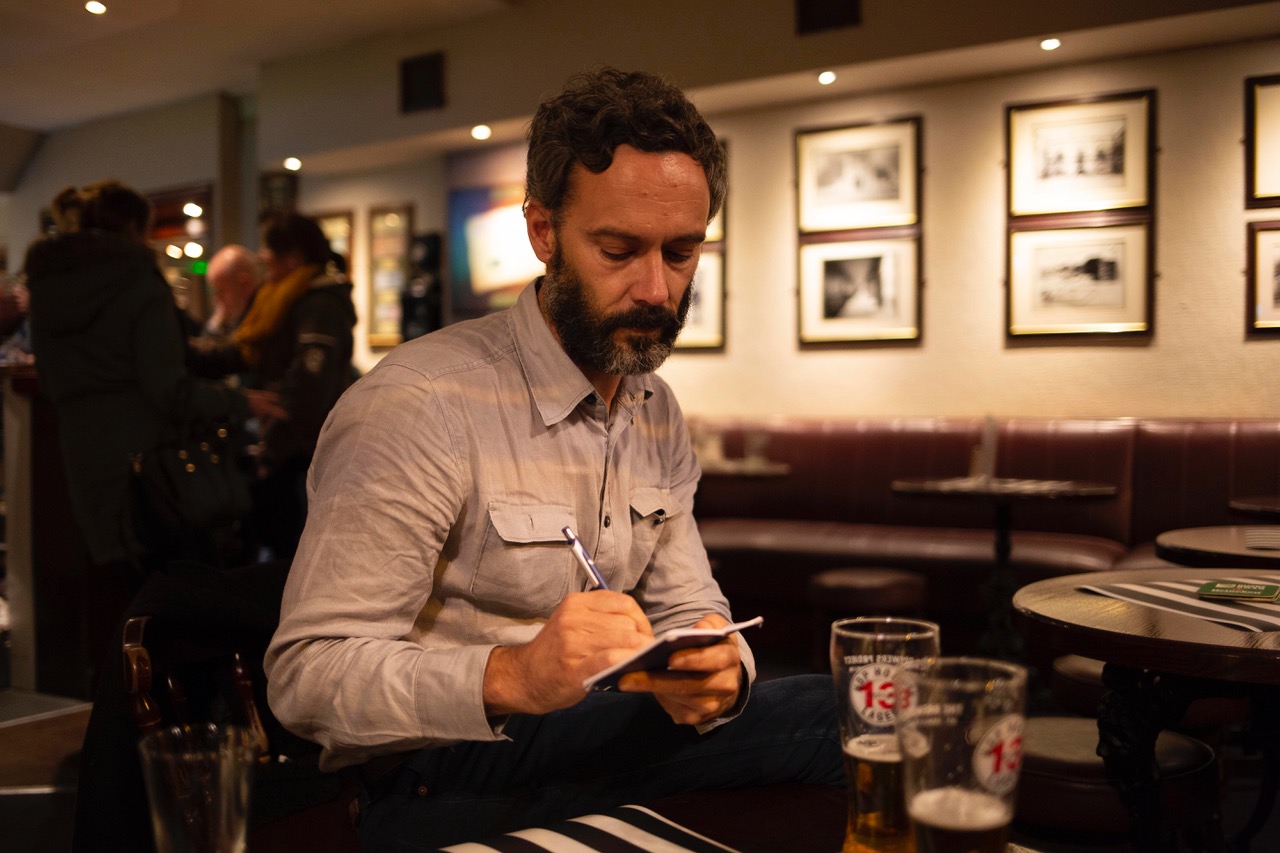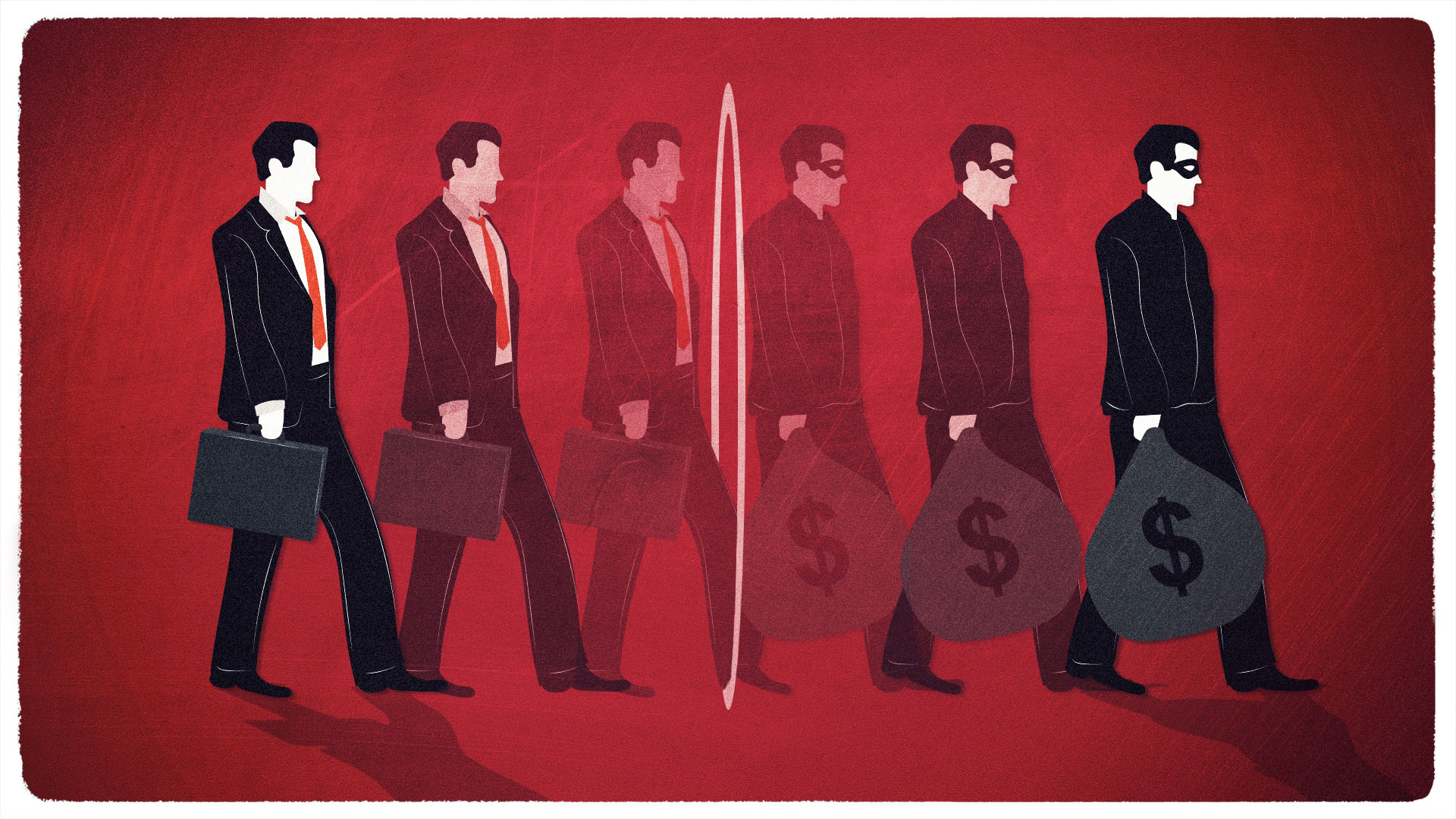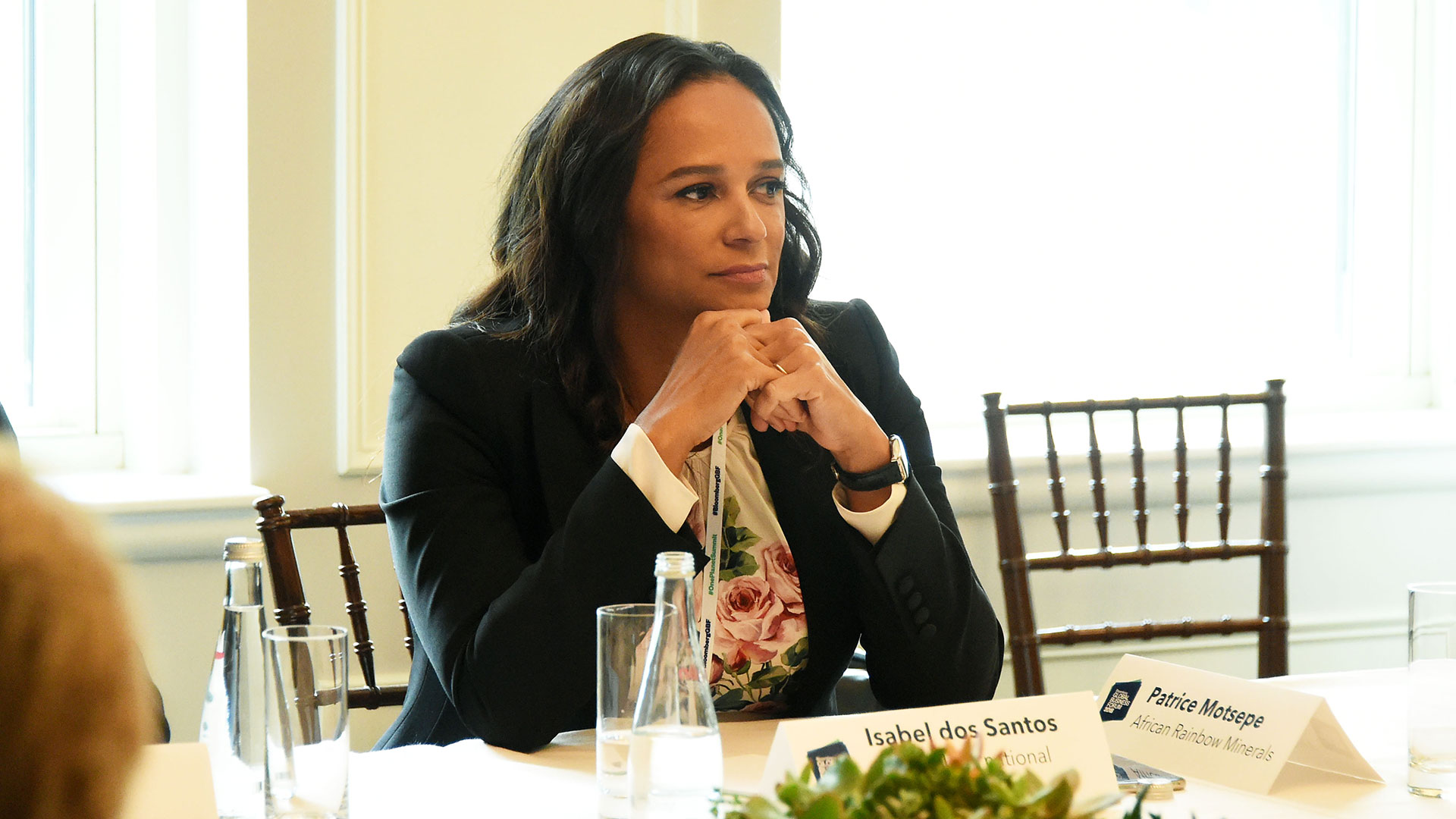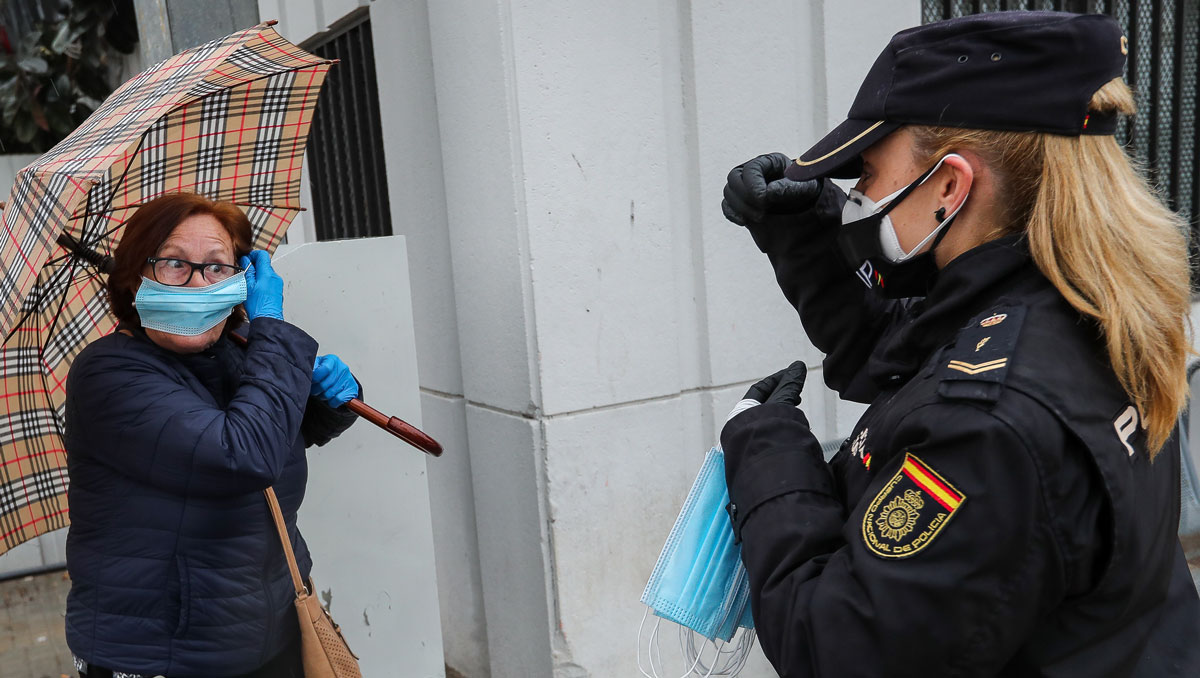The International Consortium of Investigative Journalists collaborates with hundreds of members across the world. Each journalist is among the best in his or her country and has won national and global awards. Our monthly series, Meet the Investigators, highlights the work of these tireless journalists.
Micael Pereira is a senior staff writer at Expresso, the leading Portuguese newspaper, where he has worked since 2006. Pereira has collaborated with ICIJ on multiple investigations, including Panama Papers, Paradise Papers, Bahamas Leaks and most recently Luanda Leaks.
He has also worked with the European Investigative Collaborations network on the Malta Files and Football Leaks projects. He has investigated major corruption cases in Portugal, including the case of former Prime Minister José Sócrates. Follow him on Twitter here.
You studied physics and literature in college. What led you to a career in journalism and investigative journalism specifically?
I became a journalist by chance. I have a background in science. I went to study physics, and then I studied literature and I graduated in literature. I started in journalism really young. I was 20. I did a lot of things as a journalist before I became an investigative journalist. I worked in magazines and newspapers, daily and weekly. I had a really big crush on radio when I was really young.
I sometimes get obsessed with stuff and so when I started to work for Expresso the first story that I ran into was the CIA program to get terrorist suspects from different countries. It was happening in Europe. I wanted to clarify what was the role of my own country in that secret program of the CIA after 9-11. Portugal was used as a stopover. These guys from the CIA would stop in Portugal for a couple of days after they went to grab those suspects that ended up in Guantanamo. I think it was the first time in this newspaper that I felt that I had this will of getting beyond the usual with stories.I was much more into longform. I loved the idea of just writing narratives. I had this naïve romantic idea of going to places, meeting people and maybe who knows becoming a war correspondent, something like that, but there was always I think a personal characteristic of getting more, uncovering more.
You played a key role in reporting the Luanda Leaks investigation. What was the most challenging part of that investigation for you?
There were very challenging aspects of the investigation. One of the biggest for me was to realize that we needed much more, we needed to go to Angola. It was already a big challenge just to get into Angola and so to make it work in a collaborative way so that some of us could be there together and work together — the planning of all that was really a big challenge. We planned and changed plans all the time. We were really pressed by the schedule that we established for ourselves. We had these holes in the data that we needed to fill with information coming from other sources, documentation, and in order also to match the needs of all of the partners. One of the most interesting things that we have in ICIJ collaborations is that we have to match different cultures in the way we work, in the criteria that we use. Different countries, different cultures, different ways of working and we need to share always and also make sure that we are okay, that all of us are okay with what we have and with what we need.
What was it like to be one of the only native Portuguese speakers on the Luanda Leaks project and also one of the only reporters who had previously covered the dos Santos family?
I was really thrilled about that but also I felt nervous because I thought that I could not fail with my colleagues, with everyone, because that’s the spirit of ICIJ. We need to be there when things depend on us. It was a mix of a sense of responsibility and excitement and it was demanding. I had to make choices. That was really hard to do, to make choices on where to spend my energy and time.
Last year you did a training for journalists in another Lusophone country, Guinea-Bissau. What advice do you usually share with reporters during training?
Reporters, especially in dangerous situations, should be aware that they need to keep themselves safe. You don’t need to be too bold or crazy when you’re doing work. In a place like that, like Guinea-Bissau, where you have serious issues with drug trafficking, it’s considered a narco-state, just don’t go out and go after the drug lords because police will not protect you. I think it’s basic things like keep yourself safe, keep your information safe. If you can use Signal to communicate, use it. You don’t need to know about encryption, but you can do some basic steps to not be wiretapped or have your information stolen. And also the idea that is always present in ICIJ that some stories are only able to be done with the help of other colleagues, sometimes colleagues from other countries. It’s always good if you consider the option of asking for help and see if it’s possible for other colleagues to help.

What are the challenges for investigative journalism in Portugal?
The biggest challenge is a lack of resources. Although Portugal is part of the European Union, the media industry is not in good shape and there is no real culture of investing in investigative journalism, so there are no investigative desks in the newsrooms in Portugal. There are journalists who do investigative journalism, but it doesn’t represent a big investment. Also because of the constraints brought by the financial crisis that hit Portugal really hard, the media was already in trouble, but it became even worse. Some media companies were bought by people or companies that you would say maybe were not the best ones to control media. For instance, we had two newspapers that were bought by a company in Panama, an offshore company in Panama that was controlled by a businessman who had a bank in Angola and that was really strange to have a guy like this owning at least two newspapers in Portugal. It was really interesting because he was at the center of a really big financial scandal and two years ago, I wrote a story on how he diverted more than $600 million from a bank he was running some time back. We managed to prove that he diverted more than $600 million with the help of his brother-in-law and this guy was owning newspapers in Portugal.
At the moment, the world is grappling with the coronavirus. What role should investigative journalists play during the coronavirus outbreak?
We are at the beginning of this big story. I’m sure there will be interesting and relevant things that investigative journalists can do on this story. For me, the way I see it from a personal point of view is that it’s interesting that the world is changing so dramatically and it’s changing because of globalization.
We as journalists from ICIJ, we do stories that have to do with globalization. We have been working on stories that are really rooted in globalization, some have strong financial aspects, but they have to do with these things that are happening. It’s the fact that they are dealing with globalization that makes such a strong argument in favor of why we should work together as a team. Important leads will follow the coronavirus. That will bring a sense of projects that we can do together.
I went and knocked at the door of the minister and he confessed, something that was a really big surprise for me
In addition to doing investigative journalism, you’ve traveled to a lot of interesting places to report on political issues and conflicts. What was the most interesting trip you took?
One of the most interesting trips was to this really tiny country called East Timor close to Australia, it’s a former Portuguese colony. It was really interesting to be there because you don’t always have the chance to be in a place that is a really brand-new country and everything is being done from scratch.
The first time I was there it was really interesting because I got into the investigative journalist mode. There were some policemen who were killed by the military, there was a lot of confusion, a lot of rumors. I was there doing the coverage, doing articles, and then I got so puzzled by what had happened that I stayed until I helped solve the mystery.
The interior minister, Rogerio Lobato, had hired a death squad to murder enemies of the ruling party during a coup attempt, it was a bit strange. Basically, the minister was jailed some days after I got back to Portugal and ended up being convicted. For me it was one of the most intense and exciting experiences that I had as a reporter.
There were two things that I brought to the case that I exposed. One is that I found the serial numbers of the weapons that were delivered to death squad members and also with another journalist we interviewed the death squad leader in the mountains. Then I went and knocked at the door of the minister and he confessed, something that was a really big surprise for me because I was not expecting that but sometimes reality is really different from what you expect it to be because people have different cultures in different places. It depends on the culture where you are reporting and for him, I think it was okay to say it made sense to hire those guys.
Investigative journalism can be difficult and sometimes dangerous work. What keeps you motivated? What do you like to do outside of work?
We are always stressed. I stress more about the things I have to do and less about the dangers that I face. Usually I try to spend time with my family. Family and friends.



